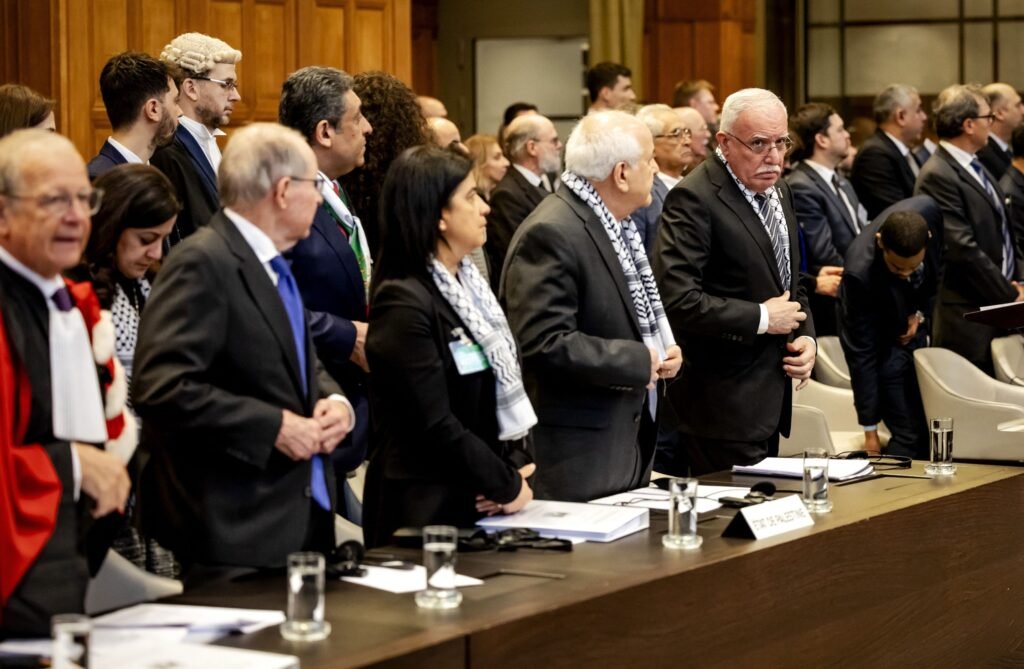The World Court or the International Court of Justice (ICJ) captured the attention of the world when earlier this year it began hearing charges against Israel which was accused of committing genocide against the Palestinian people in Gaza Strip.
An interim ruling by the court found this accusation to be plausible, although its final judgment is still some way off.
In the meantime, a second case examining Israeli operations across the occupied Palestinian territory has been initiated by the International Court of Justice (ICJ).
This case, “Legal Consequences Arising from the Policies and Practices of Israel in the Occupied Palestinian Territory, Including East Jerusalem” has a big impact on Israel and provides a big boost to diplomatic efforts to end the protracted conflict with the Palestinians.
The six-day hearing at ICJ from February 19th included over 50 countries testifying against Israel’s occupation of East Jerusalem, West Bank, and Gaza. It was the largest-ever participation in the World Court’s history.
Key Highlights
UN Resolution 77/247 and ICJ Jurisdiction
Based on Resolution 77/247, the UN General Assembly referred the ongoing occupation matter to the International Court of Justice. Upon request from the UN and its Security Council, the ICJ which has the authority to provide nonbinding advisory opinions was presented with this matter.
The resolution was met with criticism by Israel and its allies when it was released in December 2022. Israel announced that it would not be participating in the hearings or sending a delegation.
Speaking before the court, the Foreign Minister of Palestine, Riyad Maliki, asserted that for over a century, the “inalienable rights Palestinian people to self-determination has been denied and violated”.
He also disproved Israelis’ ahistorical assertion that Palestine was a barren region before the establishment of the state of Israel.
International Response to ICJ Hearing
The US supported Israel during the hearings, which itself did not attend the hearing, citing concerns that its presence might compromise a potential peace agreement with the Palestinians.
“Under the established framework, any movement towards Israel’s withdrawal from the West Bank and Gaza requires consideration of Israel’s very real security needs,” Richard Visek, a US State Department legal adviser, told the court during the hearing.
Declaring the occupation illegal, the majority of states that made oral presentations requested the International Court of Justice to make this decision. By highlighting Israel’s security concerns and pushing against ending the occupation, the United States, on the other hand, disagreed with this position.
In its proposal, Hungary said that the ICJ’s involvement was controversial and that the court lacked authority to address the issue; international negotiations should be used to resolve the dispute instead of court action. Hungary urged that the court should refrain from rendering any opinion.
Arab nations reiterated their diverging views at ICJ from Washington on the issue, with the group of 22 countries telling the court it condemns violations of international law arising out of Israel’s “racial domination and apartheid perpetrated against the Palestinian people”.
During the hearing, several countries analyzed the self-defense stance of Israel and the acquisition of territory by force.
China upholds Self-Defense Rights in International Law
China affirmed the right to self-defense as an inherent right of every state enshrined in Article 51 of the UN charter in the occurrence of an armed attack against the territorial sovereignty of a state. However, it posed the question before the court, “When can an occupying force invoke the right of self-defense? ”
China analyzed that the right of self-defense under international law hinges on whether the armed attack has occurred in the occupied territory or within its territory.
In the occupied territory, it argued, the legitimacy of the right of occupying power to self-defense depends on the legitimacy. If the occupation is unlawful, the occupying power can neither acquire territorial sovereignty can nor resort to an armed attack.
Furthermore, pro-Palestinian countries like Ireland, China, and Russia emphasized the right of self-determination of Palestinians, enshrined in Article 1 of the United Nations charter. It serves as the foundation of the charter.
China, in its legal advisory opinion, argued that in pursuit of the right to self-determination, the Palestinian people’s use of force against foreign oppression to establish an independent state is an inalienable right well-founded in International law.
It stated that various people freed themselves from colonial rule and foreign oppression to realize independent statehood after WW2.
China’s Foreign Ministry’s legal adviser stated, “Armed struggle, in this context, is distinguished from acts of terrorism.”
Also Read: Palestinian Ministry condemns Israeli settlement expansion
Implications and Future Outlook
There were only a few nations, like the US and Hungary, that took a more pro-Israeli stand and argued that Israeli-Palestinian direct negotiations should determine the status of the occupied territories rather than international court adjudication.
Additionally, they argued that the UN Security Council was the proper forum for discussing the current problems.
It is estimated that the court will take a few months before it renders its decision. Regardless of the outcome, it will ultimately be up to the various nations to decide how much they are ready to take action to put it into effect or follow the court’s advisory opinion’s recommendation.
Samiha Yousaf is a dedicated undergraduate student at Bahria University, where she is pursuing her passion for international relations and diplomacy. With a keen interest in the Middle East and Eurasia, she has emerged as a promising contributor and writer for Diplomatic Insight. Samiha's inquisitive nature and commitment to understanding complex geopolitical issues make her a valuable voice in the field.
- This author does not have any more posts.















